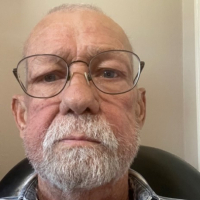The Cancer Survivors Network (CSN) is a peer support community for cancer patients, survivors, caregivers, families, and friends! CSN is a safe place to connect with others who share your interests and experiences.
Nuclear Navy Submariners and Blood Cancers
My father served in the nuclear Navy from 1968-1974.
During those years of enlistment, he was exposed to ionizing radiation daily during the years of 1970 – 1974. He received these exposures as a Machinist Mate 2nd Class (Nuclear) and job responsibilities at Naval Nuclear Protype S1C, Winsor Locks, Connecticut, which is a land-based prototype designator training facility.
Further, he received additional radiation exposure while performing his job functions in the engineering department on board duty the USS Permit, SSN-594. This includes Nuclear Reactor Systems maintenance performing primary radiochemistry analysis and radiation monitoring of onboard spaces and nuclear weapons. His job assignments on board SSN-594 also included extensive overhaul and refueling of onboard nuclear reactor systems at Mare Island Naval Shipyard. The types of ionizing radiation he was exposed to were alpha, beta, gamma and neutron
He’s fighting his own battle with a a form of blood cancer (MDS) and recovering from a stem cell transplant. Myelodysplastic syndrome with excess blasts (MDS EB-1), a group of blood disorders in which a person's bone marrow does not produce enough functioning blood cells. If the diseases progresses, it will turn into Acute Leukemia, which the VA recognizes as a presumptive disease due to ionizing radiation exposure, which at that point he won’t have long.
GVHF (graft versus host disease) is an ongoing battle after a stem cell transplant. The VA has denied his claim for a service-related disability but is assisting with his medical care. I’m trying to help my parents find an attorney to represent their appeal. They have so much to worry about with my father’s daily care. Any support or evidence he isn’t the only one out there who has served and is suffering from a form of blood cancer, is appreciated.
Are there other nuclear submariners with similar health issues?
Comments
-
You might want to explore your father's exposure to asbestos as a causative agent for your father's illnesses as well. His rating exposed him to asbestos more than sailors with other ratings and it could be the cause of some of his ailments. In my case, surface, blue-water navy, also a Machinist's Mate (but non-nuclear) the VA recognized asbestos as a contributor to my prostate cancer for which they not only take care (sub-standard in my opinion) of me but supply any medications I require at no cost to me.
-
-
Yes I have a disability rating as the result of residuals related to the prostate cancer. I understand where you are re seeking counsel to address the VA's response to your father's condition, but suggest you seek out a local VSO (Veteran's Service Officer) first. He or she will help you file a claim for your father and they really know what they're doing and aren't in it for the money - like attorneys. Good luck.
-
I’m just starting my journey. This week I was diagnosed with MDS and am to see the bone marrow specialist next week to confirm diagnosis, further testing, and to evaluate for transplant. I served aboard a submarine for five years in the early 80’s on the USS CASIMIR PULASKI (SSBN633), a ballistic missile sub. I was a Yeoman so didn’t spend a lot of time in the engineering spaces after qualifying, but stood topside watch both fore and aft while in Newport News Shipbuilding during an almost three-year refueling overhaul and so was exposed to ionizing radiation and associated hazardous chemicals one would find in those environments. I wish you all well and appreciate you sharing your experience here and advice. All the best.
-
Hello, my late husband served on the USS Nathan Hale as a machinist mate to the nuclear engine from 1973 untill about 1976. in the summer of 2017 he was diagnosed initially with MDS and later with the complication of MPN. By fall 2017, when he was not responding the usual chemotherapy, he was evaluated at Seattle Cancer Care Alliance and given the diagnosis of CMML. This is WHO's newest designation for this disease. He began induction chemo for a stem cell transplant the last week of March in 2018 but died before the stem cell transplant could begin as the disease had spread to his spinal fluid. I have long suspected that this disease happened for him as a result of exposure to ionizing radiation in the Navy during those years.There is one complicating factor, however. He also did herbicide research as a USDA weed scientist. And was no doubt exposed to some extent to various herbicides that have been allegedly connected to leukemia victims. And because the scientific evidence, for the latter is weak, I am more convinced that his disease was caused from his Navy service. Nothing to be done now for him as he died and I would not be eligible for survivor benefits. But what bothers me more than anything else is that I have two young relatives who have in recent years volunteered for submariner service without a clear understanding of the long-term risks involved. What obligation does the Navy have to inform these young submariner volunteers of the lifetime risks? And does the Navy provide full disclosure about these risks to sailors serving on such ships? I am a PhD social scientist and I have read a lot of research about this. My husband was a very proud veteran and did not want to believe that the Navy would expose him in this regard. He was always told that his dosimeter readings were well within limits.We know now, of course, that no amount of ionizing radiation is safe, but based on the research I've read, I suspect the Navy knew in the 1970s that there could be long-term consequences for this exposure. I am a veteran myself and it saddens me that our country treats enlistees this way. All submariner service is voluntary and therefore I believe they should be given the fullest explanations of lifetime risks. Unfortunately my husband's disease was not diagnosed early due to lapses in medical judgment of some of his providers. If he could've had the stem cell transplant before he became so ill, he might still be alive today.
-
-
-
-
Update: The stem cell transplant is a rough process in itself but we are thankful the VA finally approved him medically and paid for his treatment which had in turn given him more time with us. My father is in remission but as he likes to say “It’s a marathon, not a sprint.” He’s had numerous host vs graft symptoms but is doing well so far. After a long year in isolation as a result of his transplant and recovery, we sourced a reputable law firm to challenge his final appeal for his VA disability claim. He received 100% disability rating and can enjoy whatever time he’s granted on this earth with full medical and financial compensation to help my mom and him financially. Thank you for everyone’s thoughts, advice and prayers. I’m forever grateful we have more time. I would highly recommend the law firm who specializes in VA cases as well. Sending my prayers to anyone fighting for their health and VA disability process.
-
-
-
It's been well over a year now since my original post so I thought an update might be useful to let folks know the VA will recognize MDS as a service connected condition. After a year of waiting, the VA finally recognized my MDS as being service connected and granted me a 30% disability. Although the VA originally denied my claim, they eventually approved my disability once I provided a letter from my doctor citing studies that MDS isn't hereditary and is caused by environmental factors and that there was more than a 50 percent chance it was related to my service aboard submarines. I hope this bit of info is helpful.
-
I found out my father was on the Permit in 1966. He also served on the Pulaski, Sea Dragon, and Edison. It wa good to see posts stating the VA is recognizing some of these cancers. There is hope. My dad lived a long, full life. I came to this chat as the VA and his doctors said his cancer was not service replaced. I have a hard time believing that and, now reading some of your posts, am going to research further. My father-in-law passed from pancreatic cancer and that was tied directly to his exposure to agent orange in Vietnam.
-
https://csn.cancer.org/discussion/325432/nuclear-navy-submariners-and-blood-cancers
I was diagnosed with AML ( acute myeloid leukemia) in June of 2022.I was on the submarine USS Dace SSN 607, sister ship to the Thresher that went down on sea trials. From sept. 1976 until 1979. I slept in the torpedo room on a mattress next to 4 Subroc nuclear missiles, my workspace was next to the reactor compartment, I controlled the atmosphere during watch at sea and one of 3 qualified diesel engine operators on board, traveling through the reactor compartment several times during a 6hr watch. I have been trying since 2022 to get VA disability and have been denied twice. It sure is frustrating trying to get help and denied when I put my life on the line.
Discussion Boards
- All Discussion Boards
- 6 Cancer Survivors Network Information
- 6 Welcome to CSN
- 122.7K Cancer specific
- 2.8K Anal Cancer
- 457 Bladder Cancer
- 313 Bone Cancers
- 1.7K Brain Cancer
- 28.6K Breast Cancer
- 408 Childhood Cancers
- 28K Colorectal Cancer
- 4.6K Esophageal Cancer
- 1.2K Gynecological Cancers (other than ovarian and uterine)
- 13.1K Head and Neck Cancer
- 6.4K Kidney Cancer
- 685 Leukemia
- 805 Liver Cancer
- 4.2K Lung Cancer
- 5.1K Lymphoma (Hodgkin and Non-Hodgkin)
- 243 Multiple Myeloma
- 7.2K Ovarian Cancer
- 72 Pancreatic Cancer
- 494 Peritoneal Cancer
- 5.7K Prostate Cancer
- 1.2K Rare and Other Cancers
- 544 Sarcoma
- 744 Skin Cancer
- 662 Stomach Cancer
- 194 Testicular Cancer
- 1.5K Thyroid Cancer
- 5.9K Uterine/Endometrial Cancer
- 6.4K Lifestyle Discussion Boards

